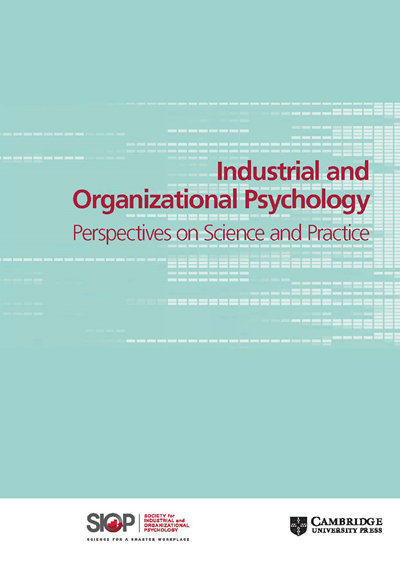Challenging assumptions in research and practice using problematization principles
IF 4.3
3区 心理学
Q1 PSYCHOLOGY, APPLIED
Industrial and Organizational Psychology-Perspectives on Science and Practice
Pub Date : 2023-03-01
DOI:10.1017/iop.2022.94
引用次数: 1
Abstract
Hyland (2023) called for our field to question assumptions and explore new ideas, suggesting a need for I-O psychologists to challenge paradigms in our field through a reflexive process. Paradigm shifts, however, can take decades to occur and often they are a culmination of successive approximations toward that goal (Alvesson & Sandberg, 2011; Hyland, 2023). Therefore, the purpose of this commentary is to provide strategies for incrementally challenging assumptions in our field, specifically, those that occur in research studies and practice environments. These strategies are guided by problematization principles for generating research questions (Alvesson & Sandberg, 2011, 2020), which is a method of inductive reasoning that is highly reflexive. Specifically, the problematization method encourages scholars to evaluate the underlying assumptions of our constructs and dominant theories and consider ways that alternative theoretical perspectives may challenge the prevailing school of thought (Alvesson & Sandberg, 2011, 2020). Hyland (2023) states that “our field does not have a robust body of literature or set of established practices for engaging in introspection and scientific self-examination” (p. 104); therefore, this commentary aims to serve as an initial blueprint for systematically engaging in reflexive processes in research studies and practice settings. In what follows, I highlight the problematization approach for generating research questions that challenge assumptions in our field. Then, I provide concrete examples of this approach in research and offer suggestions for using its principles in practice.使用问题化原则在研究和实践中挑战假设
Hyland(2023)呼吁我们的领域质疑假设并探索新想法,这表明I-O心理学家需要通过反思性过程来挑战我们领域的范式。然而,范式转变可能需要几十年的时间才能发生,而且往往是朝着这一目标不断接近的高潮(Alvesson & Sandberg, 2011;海兰德,2023)。因此,这篇评论的目的是为我们领域中不断挑战的假设提供策略,特别是那些发生在研究、研究和实践环境中的假设。这些策略以产生研究问题的问题化原则为指导(Alvesson & Sandberg, 2011, 2020),这是一种高度反思性的归纳推理方法。具体而言,问题化方法鼓励学者评估我们的结构和主导理论的潜在假设,并考虑替代理论观点可能挑战主流思想流派的方式(Alvesson & Sandberg, 2011, 2020)。Hyland(2023)指出,“我们的领域没有一个强大的文献体系,也没有一套成熟的实践来进行内省和科学的自我检查”(第104页);因此,本评论旨在为系统地参与研究、研究和实践设置中的反思过程提供初步蓝图。在接下来的内容中,我将强调问题化方法,以产生挑战我们领域假设的研究问题。然后,给出了该方法在研究中的具体实例,并对其原理在实践中的应用提出了建议。
本文章由计算机程序翻译,如有差异,请以英文原文为准。
求助全文
约1分钟内获得全文
求助全文
来源期刊

Industrial and Organizational Psychology-Perspectives on Science and Practice
PSYCHOLOGY, APPLIED-
CiteScore
7.70
自引率
10.10%
发文量
85
期刊介绍:
Industrial and Organizational Psychology-Perspectives on Science and Practice is a peer-reviewed academic journal published on behalf of the Society for Industrial and Organizational Psychology. The journal focuses on interactive exchanges on topics of importance to the science and practice of the field. It features articles that present new ideas or different takes on existing ideas, stimulating dialogue about important issues in the field. Additionally, the journal is indexed and abstracted in Clarivate Analytics SSCI, Clarivate Analytics Web of Science, European Reference Index for the Humanities and Social Sciences (ERIH PLUS), ProQuest, PsycINFO, and Scopus.
 求助内容:
求助内容: 应助结果提醒方式:
应助结果提醒方式:


